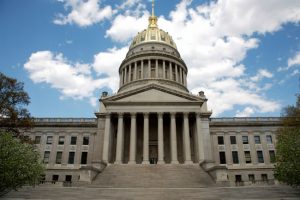 The legalization of sports betting industry across the United States includes a full menu of legal issues, the most discussed of which relates to the states’ rights to establish their own legal framework. But the gambling industry in the U.S. is governed by a complex set of rules. When it comes to the sports betting industry, the things are even more complicated due to the federal ban on sports betting established by the Professional and Amateur Sports Protection Act (PASPA).
The legalization of sports betting industry across the United States includes a full menu of legal issues, the most discussed of which relates to the states’ rights to establish their own legal framework. But the gambling industry in the U.S. is governed by a complex set of rules. When it comes to the sports betting industry, the things are even more complicated due to the federal ban on sports betting established by the Professional and Amateur Sports Protection Act (PASPA).
But it seems that PASPA may soon be consigned to history as the list of states pushing to legalize sports betting industry is growing with every passing day. This Tuesday brought us the news that West Virginia Senate approved a bill that would legalize the provision of sports betting options across the state, if the U.S. Supreme Court strikes PASPA down.
While this is a definitive victory for the U.S. gambling proponents, the bill includes clauses that would see sports betting industry regulated throughout the state, supposing that the industry generate revenue to help fund the Public Employees Insurance Agency (PEIA). Included in the bill are also clauses that would allow betting on sports at the Mountain State’s casinos and through mobile phone apps approved by the Lottery Commission. The reform passed through the Senate by the wide margin of 29-5. However, there is still a long road ahead for the sports betting industry within state lines.
West Virginia Sets Revenue Expectations on Sports Betting
 Supposing that the state brings the new laws into play, revenues reaped from the sports betting industry will go to the state Lottery Commission. Sen. John Unger, D-Berkele also suggested an amendment that would see any revenue over $15 million from sports bets to fund PEIA.
Supposing that the state brings the new laws into play, revenues reaped from the sports betting industry will go to the state Lottery Commission. Sen. John Unger, D-Berkele also suggested an amendment that would see any revenue over $15 million from sports bets to fund PEIA.
Finance Committee Chairman Sen. Craig Blair, R-Berkeley projected that the state could collect approximately $5 million in revenues in the first year after the legalization of sports betting. The revenue would reach up to $13.4 million by the third year and about $28.7 million by the fifth year.
Speaking of the bill, Senate Finance Chairman Craig Blair, R-Berkeley who led the chamber through the discussions on Tuesday commented that the bill is to enrich the casinos’ selection of games and help them keep ahead of the competition.
Sen. Corey Palumbo, D-Kanawha, and Sen. Mike Romano, D-Harrison raised concerns over the legality of the bill, pointing out the West Virginia Constitution. Judiciary Committee Chairman Sen. Charles Trump, R-Morgan explained that he believes that the bill does not run afoul of the Constitution. The bill now goes to the House of Delegates.
Many states realized that legalizing the sports betting industry is to alleviate mounting budgetary pressure. As for now, nothing is written on a stone as the U.S. Supreme Court needs to decide whether PASPA should be repealed.

















